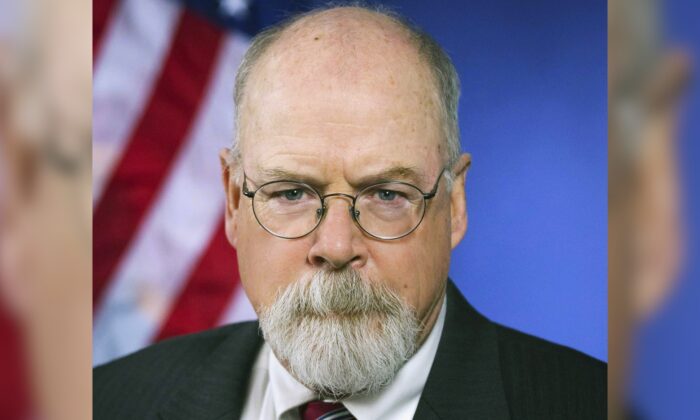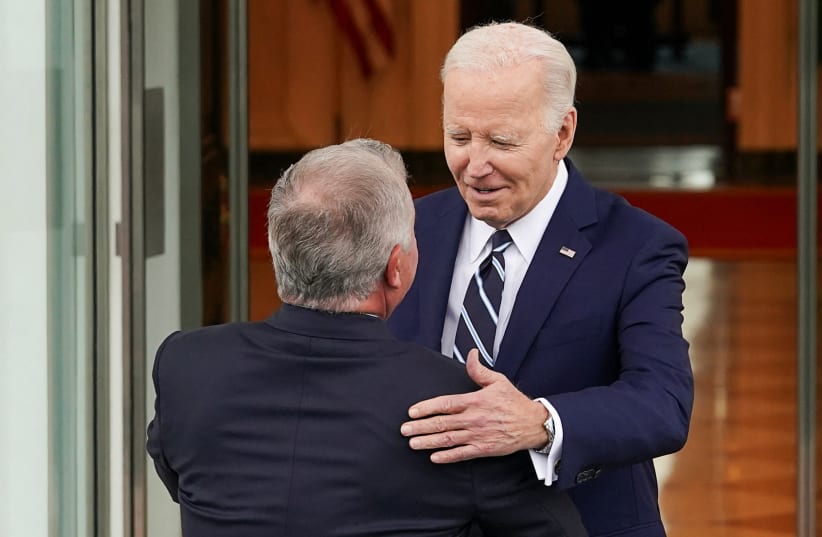“But as the days of Noe were, so shall also thecoming 2555: parousia, par-oo-see´-ah; from the present participle of 3918; a being near, i.e. advent (often, return; specially, of Christ to punish Jerusalem, or finally the wicked); (by implication) physically, aspect: — coming, presenceof the Son of man be." —Matthew 24:37
“There werecorrupt 7843: > shachath, shaw-khath´; a primitive root; to decay, i.e. (causatively) ruin (literally or figuratively):—batter, cast off, corrupt(-er, thing), destroy(-er, -uction), lose, mar, perish, spill, spoiler, x utterly, waste(-r)before God, and the earth was filled with violence." —Genesis 6:11
A former FBI intelligence chief said that the Democrats and Clinton campaign in 2016 used “contrived disinformation” to try to sway voters into thinking that then-candidate Donald Trump was a Russian asset.
In response to the Department of Homeland Security’s announcement to create a Disinformation Governance Board, retired Assistant Director for Intelligence Kevin Brock said that the agency won’t reveal actual disinformation.
“I think that disinformation is in the eye of the beholder,” he told Just The News. “I think most people suspect that all of this information will be information promulgated by one political party rather than the other. And so the danger of a governance board like this is that it will be beholden to the party that’s in power in government at that time to silence or mute opposition viewpoints.”
Instead, Brock argued that special counsel John Durham’s investigation into the origins of the Trump–Russia collusion claims is better at exposing false narratives.
“This is the way disinformation is really exposed, not by some contrived government agency, but by the evidence presented in court that gets at the truth of what happened,” Brock told the news outlet of Durham’s recent filings in court. “What Durham is methodically doing, is laying out a case that the Hillary Clinton campaign, the Democrat Party used contrived disinformation in a conspiracy, in a conspiratorial way, to deceive the American voter ahead of the election.”
Durham recently has made a flurry of filings in connection to a case against former Clinton campaign lawyer Michael Sussmann, who was charged last year with making false statements to the FBI when he told the bureau that he was not working on behalf of any client when he was being paid by the campaign. Sussmann had told the agency in late 2016 that he had evidence there was a secret backchannel between the Trump Organization and a Russian bank, a claim that was later determined to be insubstantial by the FBI.
Sussmann has pleaded not guilty to the charges. He’s scheduled to go to trial later in May.
But Brock said in the interview that other than Sussmann, other actors on behalf of the Clinton campaign and the Democratic Party should be examined as they tried to push a narrative based on spurious evidence such as the largely discredited Steele dossier.
“This is much more than an attorney for the Clinton campaign lying to the FBI,” he said. “He is using this charge to expose a larger story, a larger narrative.”
Earlier this week, a federal judge allowed Durham’s team to review documents that the Clinton campaign and other parties had previously argued were protected by the attorney-client privilege. Durham will now be able to obtain unredacted versions of documents from the Democrat-aligned Perkins Coie law firm, technology executive Rodney Joffe, and opposition research firm Fusion GPS.




